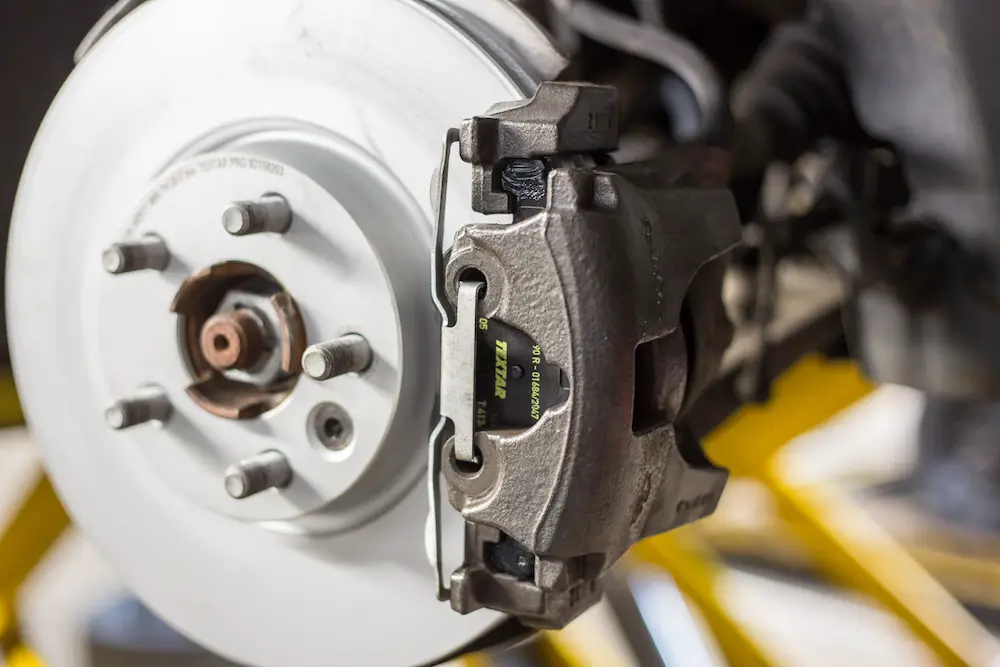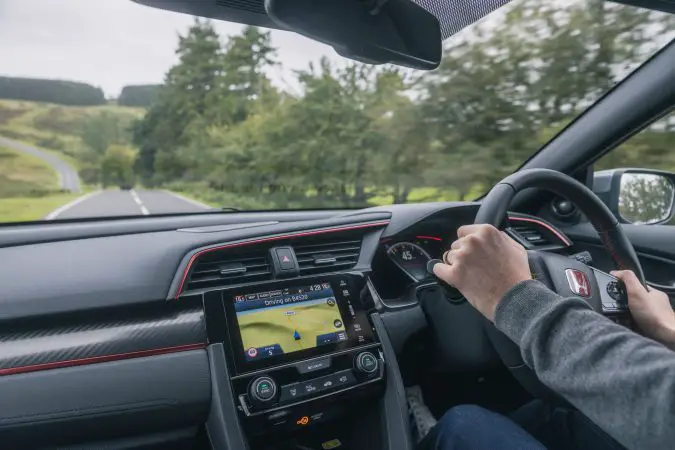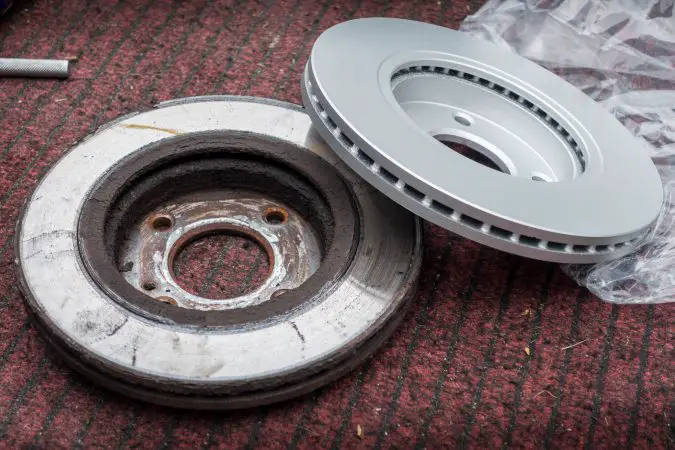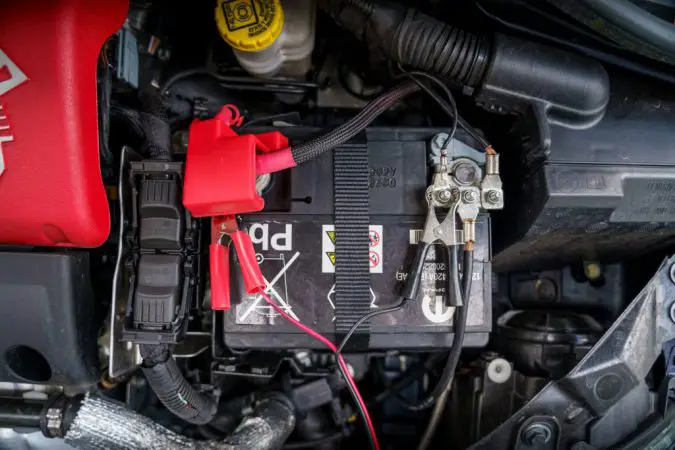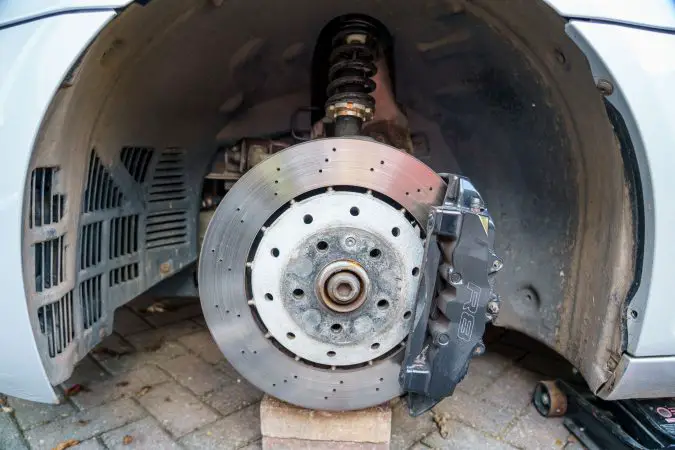According to the published statistical report by the United States Department of Transportation in 2012, that in the United States, five percent of total road accidents registered are caused by brake failure. However, we cannot blame solely on the brakes since most of the five percent figure is due to human error. With that, automakers put tremendous effort into making their braking development top-notch. Hence, it could help to prevent the issue of grinding noise when braking.
The braking system is vital to the car’s performance. It keeps the road safe, especially on high-speed highways. Braking systems are integral to cars and can also be found on bicycles, motorcycles, airplanes, boats, and yachts. Even skydivers and athletes have braking mechanisms to dampen the force they exerted. Circumventing on the concept is equivalent to producing, stopping, and overall safety.
Talking about high-performance speed junkies like the Formula 1 racing cars, NASCAR concepts, and jets, these performance machines fully tapped the potential of the braking system. The developments they integrated, such as cooling the brakes through the air – or convection – and other forms of temperature-regulating ones.
An excellent braking system allows you to maneuver and attack sharp curves – cornering; absorb tremendous amounts of force or ‘Gs’ in physics nomenclature, all of which while hitting the speed of 250 miles an hour or more. With the help of research and unrelenting efforts to uncover automotive breakthroughs in braking, we finally can glimpse what’s yet to come in the future in terms of speed and efficiency.
Braking System
Brakes work on the concept of friction, or an application of frictional force. This system is an arrangement of various linkages and components that convert the vehicle’s kinetic energy into heat energy that stops or decelerates the car.
It is the same activity that your elementary or middle school teacher wants you to do. You put your hands together, rub them, and after a while, you can feel the heat between your palms, and you eventually stop because it does hurt, right? Put it on a larger scale like cars. Here, heat generation swells faster, causing braking system deterioration over time.
To add, the braking system is arguably the most critical safety feature of any moving vehicle. Not only does it stop, but it also decelerates a moving car. The braking system provides stable parking of a vehicle on an incline or a flat surface and prevents the vehicle from any damage in any road conditions.
There are numerous kinds of braking systems:
- Hydraulic braking system
- Mechanical Braking System
- Vacuum Braking System
- Electric Braking System
- Air or Pneumatic Braking System
- Magnetic Braking System
All of the abovementioned systems create frictional contact. However, some are not physical, making a grinding noise, which we will discuss later. These contact brakes are the main drivers of the noise we hear on our vehicles when we turn, push the pedal brake too much, run at low speeds, going down hills, and other concerns regarding the grinding noise.
From a famous proverb, prevention is better than cure. This definitely applies to the brakes. Whenever you hear grinding noise or unusual sounds on the brakes, it is better to stop and assess the situation. Then, call a tow if needed. You would not want to risk your life, and others, in this kind of situation.
What Are The Reasons Why My Brakes Create Grinding Noise?
The issues could stem from many internal and external factors, but we will discuss several common reasons for this. The lack of brake pad material as well as the metal to metal contact of pads and rotors, with no sufficient amount of braking material left, are two of the main drivers and the core components of grinding noise.
This short discussion will lay out some reasons, causes, or roots of annoying grinding noises on your vehicle. We put ten reasons where you can find it and how to diagnose such a scenario.
It has a wide range of scope not only on the wheel hub but also peripheral components that may be overlooked, overused, or just need an immediate replacement.
But before that, we want to remind you that driving with grinding or squeaking brakes is bound to unpleasant endings, so I recommend that you pull over and inspect the brakes.
Causes Of Grinding Noise When Braking
#1 A Squeaking Noise While Driving Or Applying Brakes
Not only is squeaking noise annoying, but it may also indicate a bad omen. It can be either brake trouble or the brake pads that you bought are of low quality.
I don’t want to spoil you early, but the leading cause of brake squeaking is due to low quality brake pads or inferior brake pads. A cheap brake pad is too good to be true, just like some crazy deals you can get out there. With that low price, it also comes with free years of annoying squeaks and may affect the vehicle long-term.
Cheap brake pads have those large metal chips in the brake material that goes into the rotor when you lightly press the brakes. Those flakes get dragged along the rotor, causing it to create squeaking noise. The squeak may fade when that particular flake goes away or wears away. But unfortunately, another metal flake is coming right behind it.
The best way to deal with this kind of noise is to choose and buy high-quality brake pads.
#1.1 But What If Squeaking Happens While Driving?
If the brakes are squealing or squeaking while driving, and not by braking, and the noise goes away when you apply brakes, your brake wear indicator may be already on the verge of its limitations, hitting the rotor and causing such noise.
If you have no idea what a wear indicator is like, the wear indicator is a small metal tab connected to the brake pads. When those brake pads are already worn down and need immediate replacing, the metal tab starts to drag along the rotor. This tells the driver of a potential brake problem.
Most likely, your brake pads are already thin and need servicing imminently to protect the other parts of the braking system. Above all, it will contribute to your and the passenger’s safety.
#2 Thumping Brake Noise Coming From The Rear
This kind of issue is just as annoying as a grinding noise when braking. But at the same time, will cause mini-headache to your technician since they are hard to find and have barely little to no leads regarding any symptoms of this issue. But some enthusiasts, after several times, tears the rear part of the vehicle and found out that the reason for the noise is the rear drum brake.
Drum Brakes – What Are Those?
This brake can be found on many cars. This can be identified in its circular shape with two horseshoe-shaped kinds of brake pads facing each other, surrounding the drum, but symmetrical in position. They apply friction as a restrictive force by squeezing the shoe inside the drum that stops the vehicle.
Brake drums, like the rotors, get resurfaced every now and then. The cutting bit of the brake lathe removes the old braking skin and leaves a ready-to-mate surface. During this time, the cutting bit creates a trail. Or, in this case, a groove in the brake drum so subtle it is hard to notice.
#2.1 Thumping Noise, What Are The Causes?
When the brake pads or shoes ride on a new groove surface, they will follow it like a trail to the dogs. Well, if the groove is disrupted, it will no longer move. The shoes will snap back, hitting the backplate. This happens swiftly, and you can barely keep up with what happened.
Fixing The Issue
There are multiple ways to fix thumping noise. The most demanding piece of work is to part out the drums. Then, put them in a lathe machine, and sand the mating surface with coarse sandpaper. The easier way and not so complicated is to replace the rear drums. I would suggest the latter since you don’t have to have a part-out, less hassle.
#3 Grinding Noise When Braking
When you hear grinding noise when you apply the brakes, even just a gentle pedal pressure, you need to stop driving and call for assistance. Like we mentioned earlier, a grinding noise is typically caused by lackadaisical, or lack thereof, brake pad material, This is where the pads and rotors hit each other with no braking material left to grind.
Brake pads wear down like a block of ice. They will be used up in time, and you need to spend some cash on replacing them. Well, if you don’t, your brakes will eventually get to the point of grinding and will cost you more in the long run.
Fixing The Issue
Technicians, mechanics, and the likes have their jargon for this. They call it CPR as an acronym for the calipers, pads, and rotors.
If the brakes are grinding, stop the car, and call a tow truck. It would be much worth it in the longer run. If there are no other issues other than replacement, you’re lucky since you will just need to replace the brake pads so they don’t grind the rotors like sandpaper.
If you replace the pads on time, the chances of your rotors lasting are high. But if you’re stubborn enough to drive through the noise, expect to replace the rotors and some peripheral parts as well.
#4 Brakes Grinding While Driving
When running at constant speed traversing the highway or just enjoying the sunset, then a grinding noise suddenly pops in the middle of your road trip. Unfortunate as it sounds, don’t panic just yet. Inspect the caliper and rotor for any lodged rocks and debris. In this scenario, it is just an easy fix.
However, further negligence of such minor issues can severely damage the whole braking system and other performance parts.
#5 Brakes Grinding When Stopping
Another way for your brakes to cause grinding noise is when you abruptly slam on the brakes, especially in a panic stop situation. It does not have crucial effects on the braking system if your brake pads are thick.
If you hear any grinding when you suddenly stopped, the reason could be likely due to the Anti-Lock Braking System or ABS. In this kind of scenario, a panic-stop situation, the ABS will automatically engage to prevent skidding and wheel lockups. ABS works by pumping the brakes to ensure stability and control, which causes the rumbling brake pedal and the grinding noise.
What Is An Anti-Lock Braking System?
More commonly known as the ABS, the anti-lock braking system has come a long way. The origins of ABS started in 1920 when a French automobile and aircraft pioneer named Gabriel Voisin experimented with techniques that modulate hydraulic braking pressure on his aircraft brakes. The idea was to reduce the rising amount of risk of tire slippage since threshold braking on aircraft is difficult during that time.
The system we have today is far from its initial form. Presently, all of the features of ABS are products of generational development and further engagements of automakers in making safety a top priority.
Remember that an anti-lock braking system is a safety feature found in almost every vehicle on the planet. Its role hasn’t changed much since its emergence. This anti-skid braking is used on aircraft and land vehicles such as motorcycles, cars, trucks, and buses.
ABS’s automated system operates by preventing the wheels from locking up while braking. Plus, it helps in maintaining ground traction and allowing the driver to have better control over the vehicle even in split-decision situations.
Fixing The Issue
Note that once the car has stopped and removed the brake application, the grinding noise should also stop. If the brakes continue to grind and make noises, I suggest immediately taking it for a brake repair because you might have a worn brake pad.
#6 Hub Or Wheel Bearings Can Create Grinding Noise Too
The hub or wheel bearings serve as a cushion between the wheel and axle. These components eliminate friction between the involved parts. If the wheel bearings are worn, it can cause noise in that area. This is also the reason why there’s a grinding noise while turning the vehicle. Some physical manifestations of a failing wheel bearing are poor steering and uneven wire tear.
Other Components Or Areas That Are Causing Grinding Noise When Braking
If you already check the parts mentioned above in your vehicle and still found nothing, you might overlook some other vehicle aspects.
#7 Worn CV Joint
If you can hear grinding noises when making sharp, tight turns at slow speeds, then it might be a worn CV (Constant Velocity) joint. Should this not be addressed, a damaged CV will eventually fail. This can cause the vehicle to be stuck in a park. If the CV joint fails while driving, it can lead to a loss of control.
#8 Air Conditioning
Air conditioning grinding noise is subtle since you can only notice it when the air conditioning system is on—the primary source of the noise, the AC compressor.
#9 Alternator
The alternator, not the battery, powers the majority of your car’s electricity demand. It also charges the battery when not in use. Some integrated the “regenerative braking system” to charge the battery also, but that is another topic. The battery’s main usage is to start the vehicle and provide power when the engine is not running.
But then again, alternators are that important to the cars, but they also wear out through time. Modern alternators have a decoupler pulley system that promotes better fuel efficiency but can make a grinding noise that is difficult to find. A failing alternator can leave you with a dead battery, so you should take care of your alternator.
#10 Water Pump
Another reason that causes grinding noise is a failing water pump, especially when the engine is running. Water pumps are co-equal in the importance of all the engine components. It keeps the engine cool and regulates the operating temperature to avoid engine overheating. But water pumps are standard maintenance items that need replacement now and then.
Schedule an appointment with your car specialist to avoid further damage done to your vehicle.
More Matters Regarding Braking System Care And Questions
Brand New Brakes But Still Squealing
When you have new brakes, squealing noises might be due to a lack of lubrication on the caliper to pad contact points. This is not the manufacturer’s fault, though, more of a mechanic error.
How Long And How Much Does It Take For A Brake Job?
The question depends on the issue and what needs to be replaced. The rate of the labor also varies depending on their experience and expertise. But the average cost of a brake job range between $140 and $700 per axle. If the vehicle needs to have the pads and rotors replaced, the rate will be more expensive.
Should the mechanic have said that the rotors need to be replaced, you could suggest to them if they can resurface the rotors to save you a few bucks. If they can resurface, it could save you about $150.
The typical duration of a brake job takes about one to two hours, on average, and if just minor tasks. But replacing pads and rotors will take an hour per axle. If resurfacing or machining the rotors, it will take a longer time.
How Do You Check The Rotors Should Grinding Noise When Braking Be Heard?
Rotor thickness measuring is essential when doing a brake inspection. Make sure to verify the rotor thickness so there will be enough material for resurfacing. If the rotor is too thin, it might crack or fall apart when braking under harsh conditions.
You can visually inspect the rotors with measuring tools like a vernier caliper or a micrometer. The ocular inspection checks for rust on the braking surface, heat cracks, score marks, and hot spots on the braking surface.
How Long Do Brakes Last, And How Frequent Should You Change Them?
The useful life of the brakes depends on your driving habits and conditions. If you drive most of the time, going in and out, your brakes could last up to 90,000 to 11,000 miles. But if you use your vehicle for everyday errands, especially if you have a business that makes a delivery, you should be replacing your brakes every 15,000 to 20,000 miles.
On top of that, you should also be knowledgeable about the type of braking pad you are installing. Some cheap aftermarket braking pads wear like a bar of soap, a little bit of friction eats a large portion of it; cheap pads have the tendency to be very squeaky too. Brake pads, in general, are usually good for around 40,000 miles on average.
So I suggest that you should invest in high-quality brake pads just like engine oil. The better braking pads you have, the better the braking system you possess. Furthermore, it can not only prolong the vehicle’s life, but it can save you lots of money in the long run. And, it can prevent detrimental side effects of a lousy braking system. These can include that annoying grinding noise when braking.
Brake Grinding: Signs and Solutions
- Brake grinding is a common sign of a problem in your braking system that should not be ignored.
- A grinding sound when stopping is likely caused by worn-out brake pads that have exposed their metal backing plates.
- Grinding brakes can damage your braking system, including your rotors and calipers, and can reduce your brakes’ responsiveness.
- Faulty brakes can be a factor in up to 25% of all vehicle crashes, according to the National Highway Traffic Safety Administration.
- A free brake check from an expert technician can help identify brake problems and ensure your safety on the road.
- Brake fluid is essential to stopping your car as it causes the calipers to squeeze the brake pads, which press against the brake rotors.
- Worn-out brake pads and rotors are just one of many brake problems that can reduce your stopping power.
- Replacing brake pads is a simple repair that should not be neglected to avoid more complicated problems down the road.
- Neglecting brake problems can lead to extensive repairs and dangerous situations, so it’s crucial to be proactive.
- Noises from your brakes should not be ignored, and getting a brake inspection when your brakes start “acting” funny can help identify issues and avoid accidents.
Grinding Noise When Braking – Don’t Take It For Granted
We had discussed the definitive role of braking systems on how they work and operate in our vehicles. This mechanism keeps the world a safer place as well as an entertaining ground due to the groundbreaking inventions that make the braking system unique. We can talk hours about how important it is in the automotive sector, whether land, air, or water, braking systems are revolutionary.
But as we mentioned earlier, don’t take the braking system for granted. If you hear any odd sounds, squealing or squeaking, and grinding noise on the brakes, don’t ever hesitate to stop, check, and inspect. If necessary, call for assistance to tow your vehicle. Above all, safety is the heart of every braking system.
The technologies integrated, its ability to prevent the wheels from skidding, and other safety features make us appreciate this crafty engineering more.
I hope you’ve learned something here, not only the causes of brake grinding noise but also how to fix and diagnose them, care, and other frequently asked questions.

